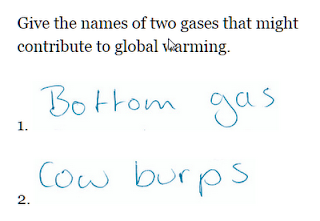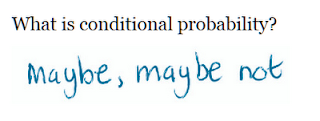Ten Years with Guru Dutt: Abrar Alvi's Journey, Sathya Saran (
Amazon,
Flipkart,
my review on Amazon.com)
An Honest Reminisce, But Doesn't Quite Flow Well Enough

Abrar Alvi penned most of the screenplays for Guru Dutt's productions, either by writing the screenplay, or the dialogues, or both, in movies like
Aar Paar,
Mr & Mrs 55,
Pyaasa,
Kaagaz Ke Phool, and
Sahib Bibi Aur Gulam. His influence on Guru Dutt's craft however went beyond being a scriptwriter, and his 10-year collaboration with Guru Dutt ended only in 1964, with Guru Dutt's suicide.
In this book, Abrar Alvi's recollects his decade of working with Guru Dutt, from the time he was virtually locked up in a room, asked by Guru Dutt to write dialogues as a test, to the time after Guru Dutt's suicide where he persuaded Dharmendra to act in "
Baharen Phir Bhi Aayengi", and also ghost-directed the movie. The movie flopped, but is still remembered today for its silky melody, "
aapke haseen rukh pe aaj naya noor hai", sung by the legendary Mohd Rafi. And while on the movie, there was a song that "
SD Burman had composed for Baharen ("Baharen Phir Bhi Aayengi"), which remained unused in the film, was later shot on Dev Anand in Jewel Thief. The song: 'yeh dil na hota bechara.'" [page 118]. Interspersed in the book, between Abrar Alvi's recollections, are comments by
Sathya Saran, the author of this book, who also adds some background information that helps clarify Abrar Alvi's recollections. It makes for fascinating reading. Whether reading how Guru Dutt would make sure his friend Johny Walker (real name 'Badruddin') got a role in every Guru Dutt movie, or how Guru Dutt enlisted the help of his cameraman, V.K. Murthy, to play a prank on Abrar, or the poignant story of why Mehmood refused to drink any alcohol. We also get to know why SD Burman, the great composer, refused to work in any movie with Sahir after Pyaasa - no, it was not jealousy that Sahir got the greater plaudits for Pyaasa, as has been often suggested.
If there is one would thing that Abrar Alvi remained (he died in 2009) somewhat bitter about, it was the lingering doubts people have whether it was he who directed the hit "Sahib Bibi Aur Gulam" or Guru Dutt handled the baton there also.
"From his tone I knew there was trouble ahead. I went to the first floor where Guru Dutt had his office, and entered the room. He started shouting at me almost immediately: 'Who do you think you are? Is it your film? It is my film.'
...
I left the room, went back to my place and wrote a letter to him, telling him it was his film, and that I did not want to be part of it. 'Do what you want with the movie,' I wrote. 'I want no credit - I have nothing to do with the film.' I dropped the letter off at his house at about five p.m.
He wrote me a reply: 'You have directed the movie, the credit, and the discredit, if any, is yours.' I still have that precious letter with me and it is the irrefutable proof, to all those who claim that my name was merely a front for Guru Dutt, that I was indeed was the director of Sahib Bibi Aur Ghulam." [page 158]
Abrar however notes that Guru Dutt wanted to, and did indeed shoot the songs for the movie,
Saibh Bibi aur Ghulam.. Abrar refused to be on the sets when Guru Dutt shot these songs, because he believed that two directors could not be on the sets at the same time. Abrar Alvi also says that Guru Dutt had a remarkable ability to use songs to advance the story, and where songs would end up becoming an integral part of the story, a narrative continuum rather than a forced contrivance.
Sahib Bibi Aur Ghulam was the only movie that Abrar Alvi directed, a Guru Dutt production, and which became one of the biggest, if not the biggest, hits of Guru Dutt Productions. That movie provides us, the readers, with a rich and fertile ground from which Abrar digs out innumerable anecdotes.
"I learnt a lot about lighting from him. It came in handy while directing Sahib Bibi Aur Ghulam. But I could never really rise to his standard of using light in a scene to make it unique and painterly." [page 103]
The most painful recollections are about the movie's heroine, Meena Kumar, however. More on that toward the end of the review.
Chaudhvi Ka Chand was perhaps the biggest hit till that time among period movies set in a Muslim milieu. The movie was also a monster hit in its own right. Abrar Alvi sheds some light on the modifications he had to make to the script, to not only improve the plot, but also to correct the stereotypical reinforcement of Muslims the story would have fortified. That Guru Dutt played a major part in the direction of the movie is also obvious, not to mention in the cinematography of the title song, "Chaudhvi Ka Chand", an incredible song with also superb music, lyrics, and singing by Mohd. Rafi.
"For six years I would not let the film, now titled Chaudhvi Ka Chand, be made. I said, 'Muslims do not really believe that their women are like a pair of shoes.' I felt it completely wrong to let a man, the hero of a film, pass on his wife to another man. I said, 'This writer has run off to Pakistan and left this third-rate story behind.'
...
Luckily for the fate of the film, Guru Dutt paid heed this time, and the script was turned around. ... Though the film's direction is officially credited to Mr Sadiq, it bears Guru Dutt's stamp all over. .. It has cinematography that once again proved that Guru Dutt was a master of lighting as well as shot composition."
Pyaasa, another Guru Dutt movie that was not only critically acclaimed but also a huge commercial success, provides us with several more anecdotes. It was also during the making of this movie that S.D. Burman decided not to work again with lyricist Sahir Ludhianvi. There are two anecdotes here worth recounting; both center around songs, one is a recitation that the movie's hero, Guru Dutt, gives at a school reunion, and the second is the movie's acclaimed song that appears in the climax, "
ye duniya agar mil bhi jaye."
"It was decided that a poem by Sahir should be used for the scene. Burman Dada had to work out a tune for the poem. On the appointed date, Rafi, who was a thorough professional, came over to Guru Dutt's place for the sitting right on time. But unfortunately for us, Dada was nowhere to be seen. I told Rafi, 'You are a master at music, why don't you recite the poem in your own style?'
Rafi thought about it a bit, and then started reciting the poem in the clear, musical voice that was his signature. And we recorded it right there, on a spool of tape, on Guru Dutt's tape recorder. So clear and distinct was the voice and the recording that we could use the copy as it was without having to record it again in the studio. In fact, the somewhat rough quality of the recording gave the scene greater authenticity." [page 73]
Abrar had to make some last minute adjustments to the script to make a somewhat lapse of judgment on Sahir's part not seem incongruous to the movie.
"But somewhere along the way, he seemed to have lost track of the millieu of the story. However, the song he wrote had enough punch and pathos in it to excite the director in Guru Dutt, who filmed it immediately.
...
I was impressed by the wonderful way he had shot it, but the lyrics dismayed me. Guru Dutt could not understand why, so I had to explain. 'The era we have placed the film in is in the mid-fifties,' I said. 'and Sahir has written about the mahelon, the takhton, the tajon ki duniya... these symbols of the Raj, royalty and zamindari are defunct; that era is past in the period our movie is set in...
Of course, it was impossible to change the lyrics; the song had already been shot. I had to do some damage control at my end and bring in relevance to the lines ... I thought about it seriously and decided to give Rehman, the publisher, some rhetoric that would justify the references to royalty. Which is why Rehman talks about the dead poet and says if Vijay were alive today he would place him on a takht and place a crown (taj) on his head ... which Vijay, standing framed in a flood of light at the door of the hall, overhears and responds to with the now-famous renunciation of the world of falsehood and hypocrisy." [page 75]?
The movie's heroine, Waheeda Rehman, plays the part of a streetwalker, and the character was portrayed somewhat on a person Abrar had met some time back, and whose real-life story was much more tragic than "Gulabo's", the name of Waheeda Rehman's character in the movie.
But the most poignant and sad recollections are that from
Sahib, Bibi, Aur Ghulam, and the movie's heroine, Meena Kumari. She was a virtual slave to her exploitative husband, Kamal Amrohi, as well as her sister and nephew. She was not only robbed of her money by her relatives, but also subject to physical violence. Her tale is not a happy one that Abrar recounts.
"'Today I will get a thrashing because I am so late,' she said to me, tears streaming down her face. It was well known that not only Kamal Amrohi but even Baker would beat her quite mercilessly. Kamal exploited her monetarily too, and at one point, when she came to stay with her brother-in-law, Mehmood, the actress who had ruled Hindi cinema successfully for so many years and had been the darling of millions did not even have suitable clothes to wear.
...
It is another well-known fact that one of India's biggest stars died in absolute penury, having been successfully looted by her husband and by her own relatives. She lived next door to our bungalow. Her sister and nephew moved in with her and looted her methodically. There would be days when she would drop in to ask my wife for food, as there would be nothing for her to eat at her home. She would eat the leftovers or content herself with bread dipped in tea. It was tragic to see her that way. She was steadily ruining herself with drink, turning into an alcoholic, and to me it appeared as if the story of Chhoti Bahu was being repeated in real life." [page 167]
The book also covers more commonly known topics and controversies such as Guru Dutt's dalliance with Waheeda Rehman - Guru Dutt found companionship and fulfillment with Waheeda Rehman, but could not see his wife with another man, such was the age-old conflict that he found himself in - the consequent tensions between Guru Dutt and his wife, singer Geeta Dutt, as well as the downward emotional spiral that ultimately resulted in Guru Dutt's suicide.
This is a first-rate book, and I would highly recommend it. The first-person narrative style interspersed with commentary by the author, Sathya Saran, has its advantages, the biggest one being to keep the attention and focus on Abrar Alvi. The disadvantage is that you miss the simpler, linear arc that you otherwise would get from a story written in the third-person. I liked the book's style, but remained somewhat ambivalent as to its efficacy.
© 2012, Abhinav Agarwal (अभिनव अग्रवाल). All rights reserved.













